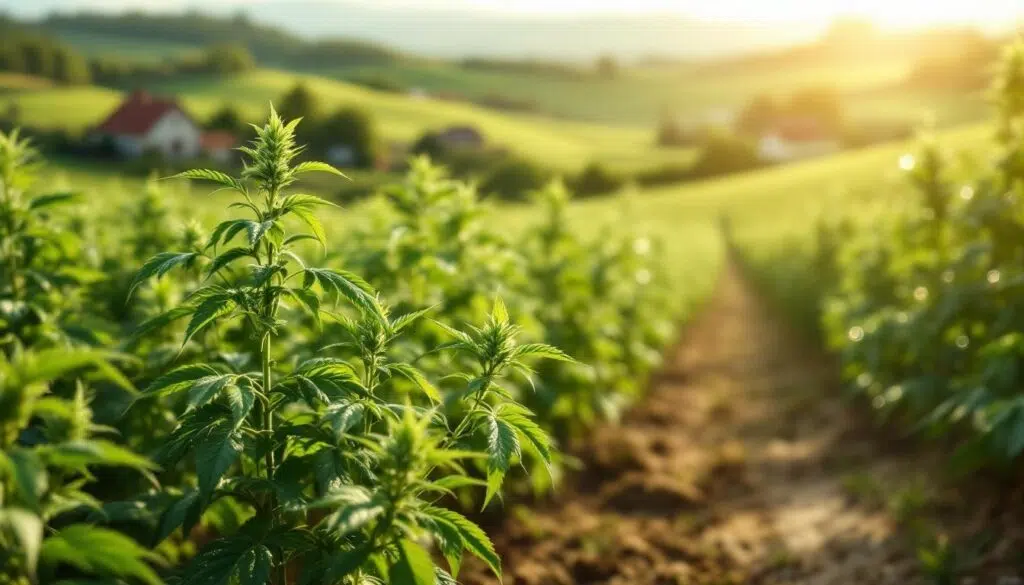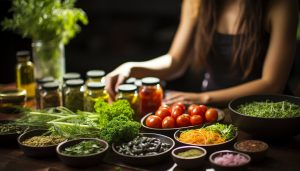In France, the question of growing one’s own CBD hemp is generating growing interest. Many people wonder about the legality of growing hemp, the procedures to follow, and the limitations imposed by the regulations governing this sector. Between the specificities of the French legal framework and the distinction between personal consumption and professional farming, it is essential to fully understand the rules before attempting to grow it. The Legality of Growing CBD in France The French legal framework regarding hemp has evolved significantly in recent years. Although CBD is not considered a narcotic, the plant itself remains subject to strict supervision by the authorities. The legislation governing hemp thus imposes numerous conditions to limit any risk of drifting towards recreational cannabis rich in THC. To consider growing hemp for CBD production, simply having a garden is not enough. There are specific requirements, particularly regarding the choice of variety, the maximum authorized THC content, and obtaining a mandatory authorization. These rules aim to protect the industry and ensure impeccable traceability. To better understand the legal THC content and the obligations associated with growing CBD in France, consult this detailed article on the legal framework for CBD in the country.Distinction between individuals and professional farmers A fundamental point to be aware of concerns the difference in treatment between individuals and professional farmers. In France, only a registered farm can legally cultivate industrial hemp. Individuals therefore do not have access to this option: even for strictly personal use, hemp cultivation is prohibited without professional status or an official declaration to the relevant bodies.This distinction aims to prevent any diversion of the industry by reserving hemp production for licensed farmers capable of ensuring traceability and compliance with standards. It is therefore crucial to clearly differentiate between prohibited private use and a regulated activity strictly reserved for professionals with all the necessary authorizations. This also guarantees compliance with the maximum THC level set by the regulations, as explained in the official resources relating to the legal limit of THC in cannabidiol.
Sommaire
ToggleConditions for obtaining a compulsory license
Obtaining authorization to cultivate CBD hemp is not a trivial formality. Farmers wishing to produce CBD must submit an application to the prefectural services, provide proof of their professional status, and use a variety listed in the authorized European catalog. Specific growing conditions are also imposed: no cuttings, mandatory destruction of certain parts of the plant, and regular monitoring of THC content. Only licensed professional farmers can benefit from this procedure and sell their produce in compliance with legal requirements. What are the regulations governing hemp cultivation? Behind the legislation governing hemp cultivation are several essential rules designed to prevent abuse and protect consumers. Mastering the intricacies of these regulations helps avoid any legal or administrative risks when producing industrial hemp. Controls are based on various criteria: certified seed origin, compliance with the maximum permitted THC level, existence of a registered farm, and compliance with administrative declarations to the relevant authorities.Authorized varieties and THC limits All Legal hemp cultivation
must come from varieties listed in the Common European Catalogue, specially selected for their very low THC concentration. This requirement ensures that cultivated plants pose no risk to public health and remain legally compliant. Currently, themaximum THC content permitted in hemp plants grown in France is set at 0.3%. Exceeding this limit results in the immediate destruction of the crop and criminal penalties for the producer, whether a farmer or a professional operator.Controls, obligations, and procedures to follow Once planting has begun, the licensed farmer
must regularly demonstrate the compliance of their production: sampling, accredited laboratory analyses, communication with government agencies, etc. These procedures contribute to a rigorous control aimed at preventing any misuse of hemp under the pretext of
cannabidiol .Furthermore, only the recovery of fibers and seeds was initially authorized for commercial use. This point is evolving with European and French directives, but still requires increased vigilance on the part of producers to remain within the legal framework. The chosen variety must be listed in the official European catalog.The farm must be registered and have a mandatory license. Regular analyses ensure compliance with the maximum authorized THC content. The producer must have the status of a recognized professional farmer. The sale of finished products (seeds, fibers, oils) must comply with the traceability requirements imposed by regulations. What are the risks of illegally growing CBD hemp?
Planting a few CBD hemp plants at home without proper registration or declaration exposes the individual to legal prosecution and confiscation of the plants. Any cultivation outside an approved agricultural environment constitutes an offense, regardless of the declared THC level or the intended purpose. The law provides for severe penalties: fines, substantial fines, and even harsher penalties for repeat offenses or suspected trafficking. Law enforcement enforces a zero-tolerance policy against illegal hemp cultivation, reinforcing the prohibition for individuals. Status Right to Cultivate License RequiredControl
Individual
NoNot accessible Under penalty Professional Farmer Yes Required Subject to audit Access to hemp production is thus reserved for professionals to guarantee product quality and consumer safety. Awareness campaigns regularly highlight the risk of scams related to the sale of supposedly “legal” seeds to individuals. To enjoy the benefits of CBD with complete peace of mind, it’s best to choose specialized stores such as Weedy.fr, which offer a wide range of tested products that comply with French legislation.Everything you need to know about growing CBD hemp in France: your essential questions
How do you differentiate between industrial hemp and conventional cannabis? Industrial hemp and conventional cannabis have similar botanical characteristics, but their uses differ profoundly. Industrial hemp includes authorized varieties listed in the European catalog, mainly grown for fiber or seed, rich in CBD but low in THC.Conventional cannabis: High THC content, prohibited in France. Industrial hemp: THC content less than 0.3%, legal under strict conditions. Systematic inspection of seed certificates ensures the regulatory distinction between these two types of crops.
Can an individual obtain special authorization to grow CBD hemp at home? No exemption is granted to
individuals wishing to cultivate CBD hemp, even on a small scale and without the intention of selling. The regulations governing hemp reserve this activity for duly declared professional farms. No individual licenses are issued to individuals. Risk of criminal sanctions in the event of illegal cultivation.Regular inspections are required to ensure compliance with the official supply chain.
This restriction aims to maintain health safety and combat uncontrolled trafficking. What are the challenges of traceability for licensed farmers? Traceability plays a central role in the legislation governing hemp. All licensed farmers must prove the origin of their seeds, document each batch produced, and retain the results of official analyses on THC levels. Failure to do so may result in the harvest being destroyed. Elements to be tracedMandatory method Seed Certificate accompanying each delivered bag
THC content
Analysis performed by an authorized laboratory Plot declaration Registration with the prefectural authorities This approach guarantees a secure supply chain and prevents fraud in the distribution of hemp products.Where can I find CBD products that comply with French regulations?
To access reliable and legal CBD products, it is advisable to favor points of sale recognized for their transparency and reliability. Here are the elements to check: Compliance certified by independent laboratory analyses. European origin of the plant, listed in the authorized catalog.
Clear indication of the THC content (less than 0.3%).
Specialized stores such as Weedy.fr now offer a wide selection of ready-to-use products, meeting consumer expectations while scrupulously respecting French legislation.
Alexandre Lacarré is recognized as an innovative and influential leader in the cannabidiol (CBD) industry. Alexandre began his career in the biotechnology sector, where he gained valuable expertise in research and development. Passionate about the therapeutic potential of natural compounds, he quickly shifted his focus to the nascent CBD industry.



